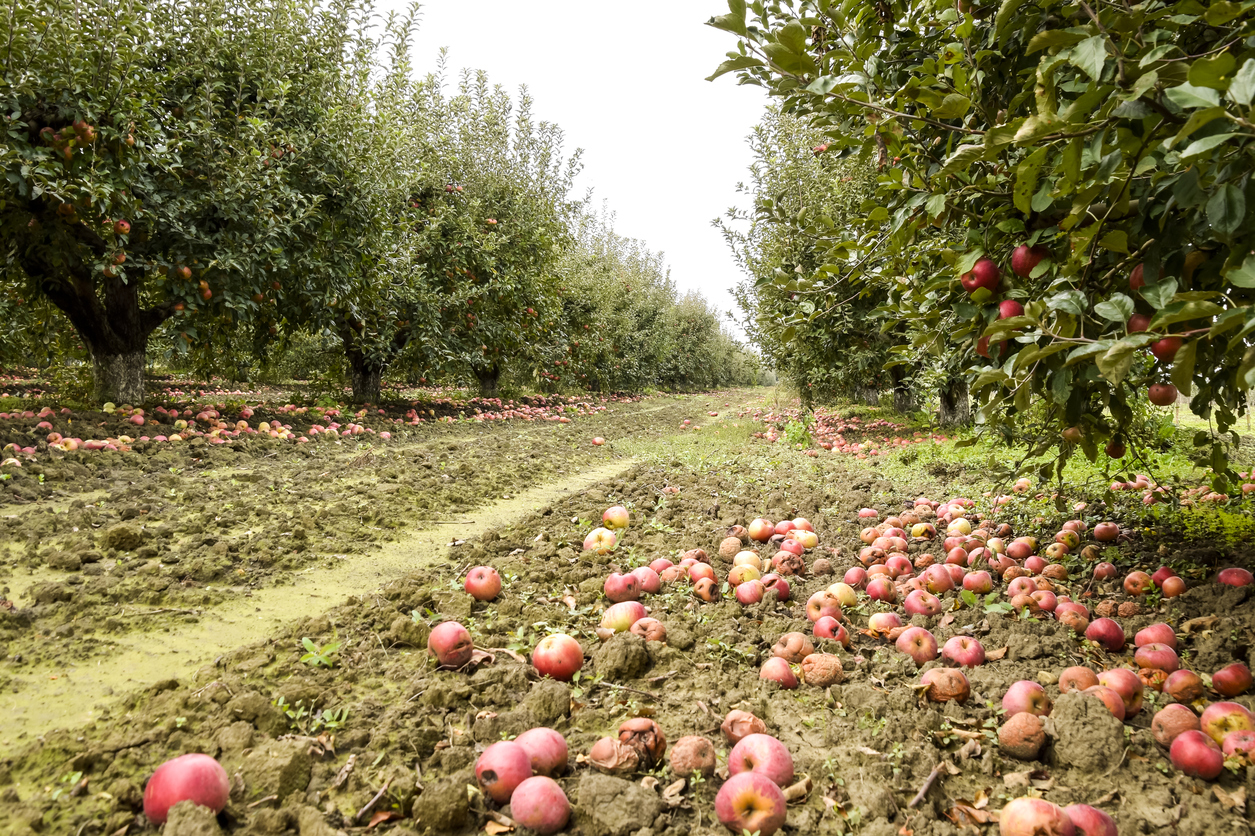By JOANNA DETZ/ecoRI News staff
 |
| The U.S. Department of Agriculture estimates that 4 percent of planted vegetable and fruit fields are left unharvested annually. (istock) |
In her previous job as assistant director of programs at the Rhode
Island Food Bank, Eva Agudelo saw firsthand the demand for fresh produce among
those families who relied on food pantries.
In 2017, according to its annual
report, the Rhode Island Community Food Bank distributed 2.3 million
pounds of fresh produce to local pantries.
Some of that produce was grown
locally, but the food bank purchased much of it from out of state.
During her time at the Community Food Bank, Agudelo also served on
the Rhode Island Food Policy Council, which has
been working to address the problem of food waste. From this vantage, she began
thinking more about the produce that is wasted before it even hits a plate and
how it might be rescued to feed those in need.
"A lot of people have
wanted to do it, but those people had other jobs. The work requires a dedicated
person," Agudelo said.
This spring, she became a
dedicated person. Agudelo’s new venture, Hope’s Harvest, which she launched with a Carter
Fellowship for Entrepreneurial Innovation from the Rhode Island
Foundation, aims to create a system to rescue food from local farms to meet the
needs of Rhode Island’s food-insecure populations by using the age-old practice
of gleaning.
Gleaning is the act of
collecting surplus crops from the fields. The practice traces its origins to a
time when landowners invited peasants onto their fields after the main harvest
to take what was left.
According to Agudelo’s rough calculations, between 1.1 million and
1.9 million pounds of fruits and vegetables planted in Rhode Island are not
harvested. This annual figure doesn't account for the amount of food that is
harvested but not sold because of grading or sorting post harvest.
Agudelo based her
calculations on a 2017
report by the Natural Resources Defense Council, which reported
that the U.S. Department of Agriculture estimates 4 percent of planted fruit
and vegetable fields are left unharvested each year.
The reasons for a modern-day
farmer leaving his or her crops in the field vary from customers' unwillingness
to buy "ugly" produce to extreme weather events. But one of the
biggest factors is market fluctuation. For example, when prices for a certain
crop fall too low, the cost of hiring workers to harvest a field may result in
a loss for a farmer already operating on thin margins.
Some Rhode Island farms have informal
arrangements for rescuing food, but, according to Agudelo, doing the
work effectively and creating a system-wide food-rescue program requires a
dedicated person for consistency and dependability.
“It’s complicated and a
logistical challenge that requires a knowledge of how the different
stakeholders operate,” she said.
For instance, if a farmer
has crops remaining in a field that is ready to be plowed over and planted with
a new crop, that farmer can't always muster the workforce needed to harvest
this surplus in the short time window.
“Farmers don’t have any
flexibility with how to use labor and time, and what’s needed is to fill labor
gaps so you can lift the burden from farmers,” Agudelo said.
Agudelo plans to start
gleaning in July and has set a goal of rescuing 60,000 pounds of local farm
produce in her first season. She recently told ecoRI News that she already has
six farms and three food pantries signed up. To do the work she will be using a
vehicle provided by Farm Fresh Rhode
Island, the fiscal sponsor of Hope’s Harvest, and, like We Share
Hope, she will be relying on a cadre of volunteers.
“People are hungry for a
connection to the earth," she said. “The world makes us feel powerless
right now, but this (work) is immediately gratifying.”
As she gets the program up
and running, Hope's Harvest will be offering its gleaning services to farms at
no cost.
"We are dealing with a
market failure, if there were money to be made off this, someone would already
be doing the work,” Agudelo said.
Cable Car Cinema will be partnering with
Hope’s Harvest to host a screening of
the documentary “The Gleaners and I” on May 22. The screening will be followed
by a panel discussion on the topic of food waste. Community members who
are interested in volunteering with Hope's Harvest can learn more at hopesharvest.org.